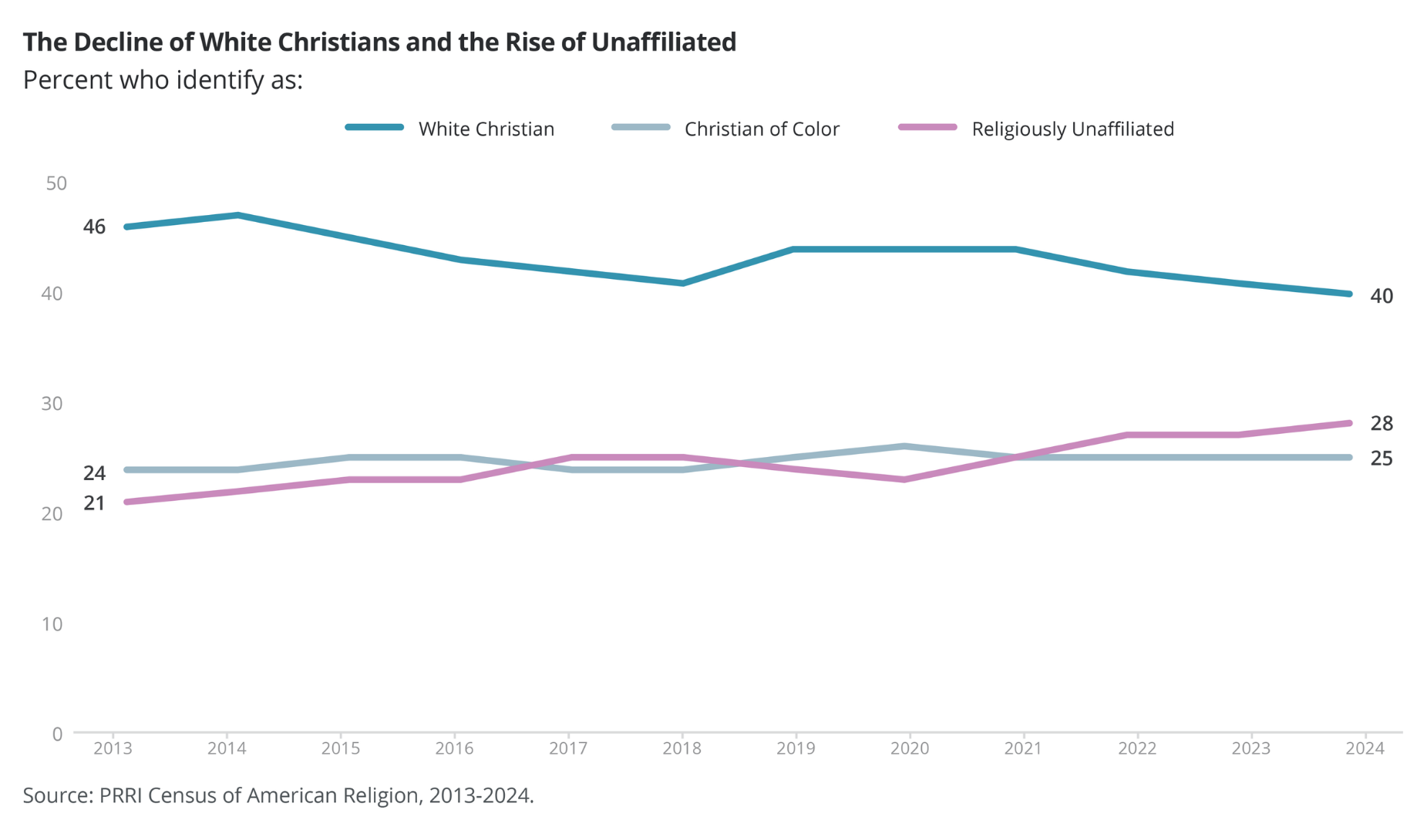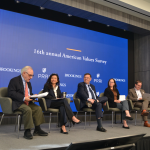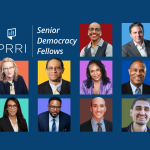On August 5, PRRI hosted an online event exploring how and why charismatic Christianity — characterized by practices like speaking in tongues, divine healing, and prophecy — is spreading in the United States, and what this growth means for American politics today. The conversation featured affiliated scholars Leah Payne, Ph.D., and Paul Djupe, Ph.D., alongside PRRI Public Fellow Dara Delgado, Ph.D., and CEO Melissa Deckman, Ph.D.
The scholars began by reflecting on the importance of examining charismatic Christians from a political perspective. “The fact that we have been talking about whether politicians are anointed by God to be in their positions — those are contributions from the charismatic religious movement, and they have swept through American religion and politics,” Djupe stated.
Delgado highlighted just how visible charismatic Christians have become in political life, from worship services in the White House to charismatic leaders laying hands on the president. “Charismatic Christians in this contemporary moment are enjoying a particular access to power that maybe they haven’t seen before, and they share that with this current administration,” she said. “Watching these two dance together is quite interesting.”
Payne discussed the origins of the modern Pentecostal movement and discussed the movement’s current influence on evangelical Christians, adding, “if we want to understand evangelicalism and its future, we need to look to the charismatics.”
Deckman provided context using data from the PRRI Census of American Religion, noting that the percentage of white Christians in the United States declined from 46% in 2013 to 40% in 2024, reflecting a rise in the number of Americans who are disaffiliating from religion and increasing racial diversity in the country. Additionally, she highlighted that charismatic practices are particularly prevalent among Black Protestants, with 66% reporting they have experienced three or more charismatic events at religious services, compared with 31% of American churchgoers overall.
 Building on this, Delgado discussed the charismatic movement’s resonance with Black Americans and how it has been complicated by the current political climate. “Yes, they’re speaking in tongues, yes, they’re believing in prophecy, yes, they’re doing healing — but many of them are now having to reconsider, how does this affect my Black identity, not just my American one?”
Building on this, Delgado discussed the charismatic movement’s resonance with Black Americans and how it has been complicated by the current political climate. “Yes, they’re speaking in tongues, yes, they’re believing in prophecy, yes, they’re doing healing — but many of them are now having to reconsider, how does this affect my Black identity, not just my American one?”
Finally, the scholars addressed how charismatic Christianity is reshaping the Christian right. “These days, to understand conservative Christians is to really have to wrestle with what it means to be a Charismatic, and what the worldview of a charismatic looks like,” Djupe explained. One focus was the New Apostolic Reformation (NAR), a movement within charismatic Christianity that promotes Christian dominion using the “seven mountains (7M) mandate,” which encourages followers to ascend the spheres of business, media, politics, and other societal pillars. Notably, Christian leaders with ties to the NAR have been platformed by the Trump administration, including Paula White, signaling the movement’s growing political reach. As charismatic Christians grow in numbers, visibility, and influence, paying attention to this movement will be essential for understanding the future of American religion and politics.
For more on charismatic Christians, view the full event and slides, and check out the following resources:
- PRRI’s 2024 Report: Religious Change in America
- Spotlight Analysis: Prophecy, Trump, and the Justification of Political Violence
- Spotlight Analysis: How Charismatic and Pentecostal Conservatives Are Shaping the American Right Wing of Today







